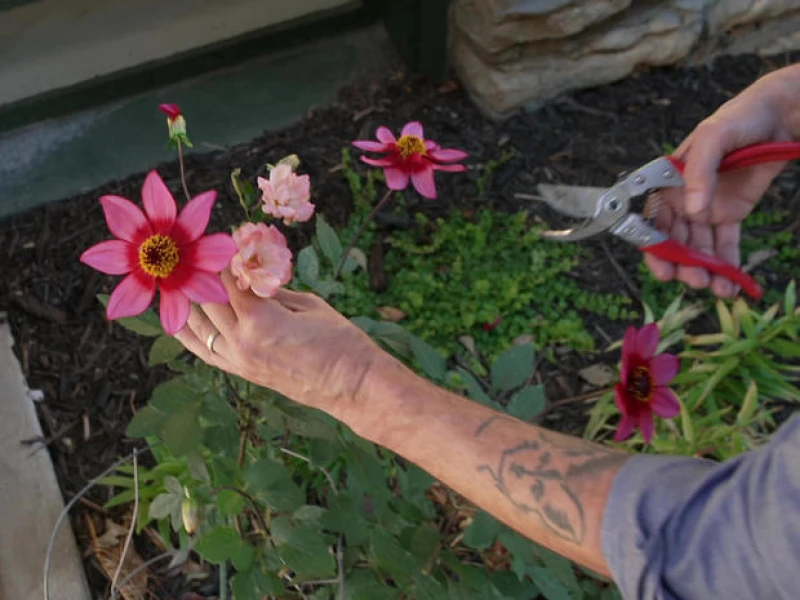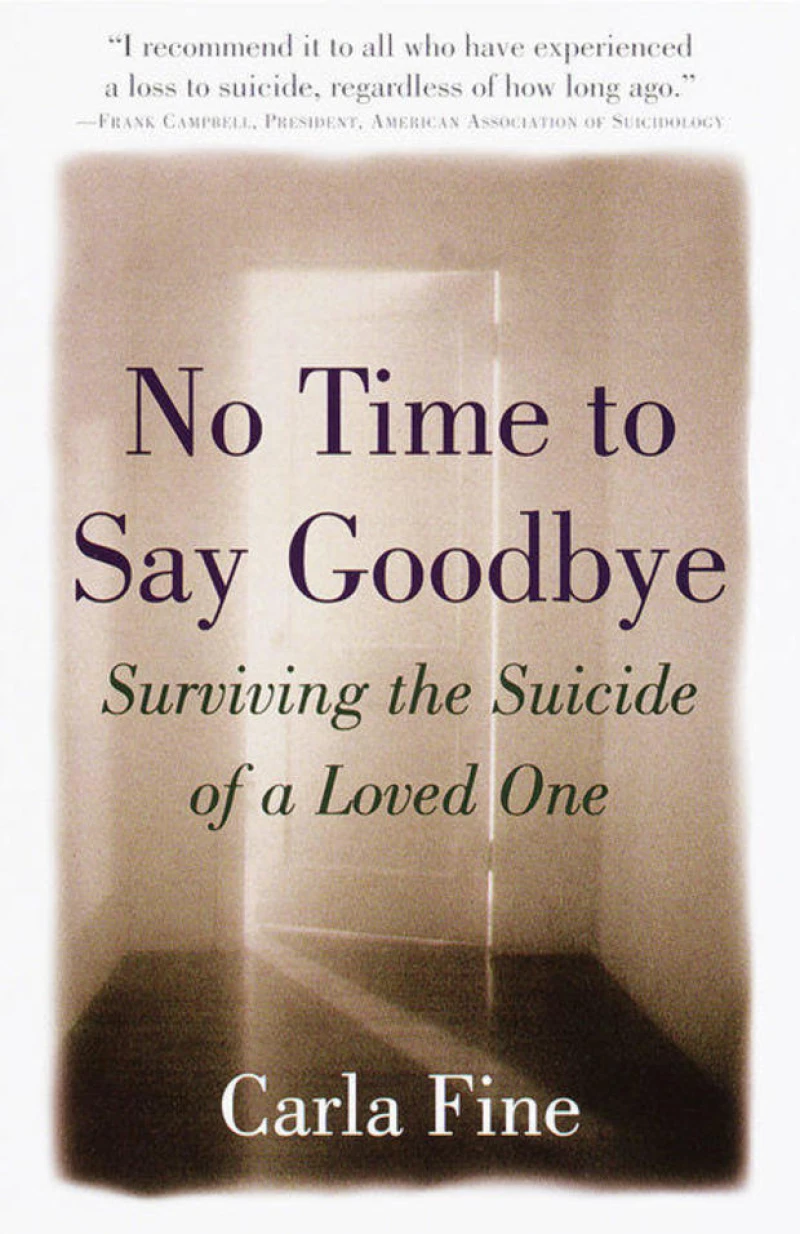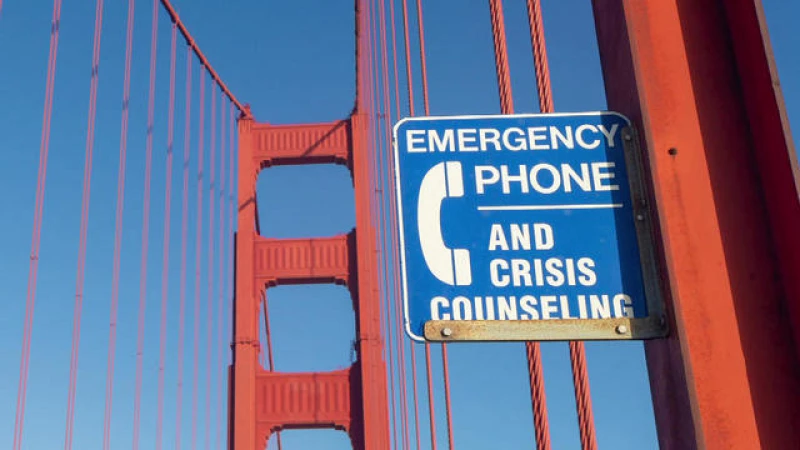Gardening at home in Kansas City, Missouri, Clancy Martin hardly looks like someone who has struggled for years with grim thoughts of suicide. "It was just all day, every day, wanting to die, wanting to take my own life," he said.
It started young, very young. At six he ran in front of a bus – the first of ten suicide attempts over the years. "One time I pushed myself off a building," he recalled, "and a friend, who almost went over with me, grabbed me from behind, who I didn't even know was there. It's a miracle that I'm alive. And I'm so grateful for that miracle!"

Suicidal thoughts at six may be rare, but now 56, Martin fits one of the demographics most likely to die by suicide: White males, middle-aged and older. But in America today, every demographic is at risk, said psychiatrist Christine Yu Moutier, who heads up the American Foundation for Suicide Prevention. "Suicidal ideation is actually so common in the general population," she said.
For example, a recent study notes that about one in five high school students has contemplated attempting suicide.
Public Health Crisis: Suicide Rates in the United States
According to recent reports, the United States is facing a public health crisis in the form of increasing suicide rates. In the past year alone, approximately 13 million American adults have had serious thoughts of suicide, highlighting the severity of the issue.
In 2021, the number of suicides in the U.S. reached nearly 50,000, as stated by Tia Dole, a psychologist at Vibrant Emotional Health in New York City. Dole attributes a significant portion of this rise to an epidemic of loneliness, explaining that individuals in the country are grappling with isolation, sadness, and anxiety, ultimately leading them to consider suicide as an option.
According to the American Foundation for Suicide Prevention, an average of 132 Americans take their own lives every day. This staggering statistic emphasizes the urgent need for action and intervention. Dr. Christine Moutier, a leading expert in the field, states, "One suicide death is too many. So, 130-something a day is actually an enormous and tragic loss of life, many times prematurely, many times preventable."
Dr. Moutier also emphasizes the importance of addressing the stigma surrounding suicide. She highlights that research shows many young people and adults who experience mental health suffering and suicidal thoughts do not seek help or disclose their struggles due to the shame and stigma associated with it. To combat this, efforts must be made to create an environment where individuals feel safe and supported in discussing their mental health challenges.
That stigma with talking about suicidal ideation compounds the likelihood that they'll go through with it. "It keeps them from being able to take the step to open up, to talk about what they're experiencing, and then to get the help that they need," Moutier said.
Carla Fine, a renowned author, has dedicated over two decades to writing and speaking about suicide. "Even now, even when we talk about every single subject, and there's nothing off-limits, suicide is off-limits," she said.
Her journey began with her own devastating experience: Her husband took his own life at the age of 43. "I was angry, and I was confused, and I was horrified, and I was in disbelief, and I was numb. I was every single thing looking at this," said Fine.
Dr. Harry Reiss, Carla's husband, was a highly accomplished urologist and an assistant professor at NYU Medical School at the time of his death.
Fine said the stigma surrounding his death led her to lie: "My first reaction was not to tell the truth. I told people that Harry died of a heart attack."
Why? "I thought at that point that I was protecting him. I didn't want people to think he was crazy. He was such a great doctor. I didn't want people to think, 'What's wrong with Harry?' And then I thought, 'Wait a minute. I think I'm protecting myself.'"
Dole shared his perspective on suicide, stating, "When individuals die by suicide, there tends to be a judgment made about their character. People may assume that there is something inherently wrong with them, that they have failed, or that they are simply bad people."
Leading the newly revamped 988 Suicide & Crisis Lifeline, a federally-funded project worth $232 million, Dole and his team of trained counselors answered a staggering five million calls last year. Dole emphasized the impact of their work, saying, "If a suicidal young person speaks to a supportive adult, it can reduce their risk of suicide by 40%."
Spencer questioned the effectiveness of the lifeline, asking, "Are you suggesting that a 15 to 20-minute phone call can actually save someone's life?"
Dole responded confidently, "Absolutely! We have conversations with people, both figuratively and literally, to prevent them from taking drastic actions. There have been instances where individuals have called us while standing on a bridge, and we were able to talk them down. In some cases, we even dispatch emergency services to their location."
Spencer continued, "It must be incredibly rewarding to know that you've saved someone's life."
Dole corrected him, saying, "Oh, no. People ultimately save their own lives. Our counselors equip them with the necessary tools, but it is the individual who makes the decision to save themselves."
Clancy Martin, a professor at the University of Missouri-Kansas City, has been free from suicidal thoughts for over five years. He attributes his recovery to the process of writing his book, titled "How Not to Kill Yourself: A Portrait of the Suicidal Mind".

Martin, who defied the stigma, found solace in connecting with others who were going through similar struggles. He expressed gratitude for the change in his thinking, stating that his deep belief structure had shifted.
Moutier, an advocate for mental health, emphasized the power of sharing one's own experiences and realizing that many others can relate to them.
During an interview, Spencer asked Martin if he believed he would never attempt suicide again. Martin cautiously responded, expressing his belief that he would not try again.
If you or someone you know is in emotional distress or at risk of suicide, please contact the 988 Suicide & Crisis Lifeline at 988. You can also chat with the 988 Suicide & Crisis Lifeline here.
For more information on mental health care resources and support, contact the National Alliance on Mental Illness (NAMI) HelpLine at 1-800-950-NAMI (6264) or email [email protected]. The HelpLine is available Monday through Friday from 10 a.m. to 10 p.m. ET.
For more information:
- "How Not to Kill Yourself: A Portrait of the Suicidal Mind" by Clancy Martin (Pantheon), in Hardcover, eBook and Audio formats, available via Amazon, Barnes & Noble and Bookshop.org
- Clancy Martin, professor, University of Missouri-Kansas City
- American Foundation for Suicide Prevention
- Vibrant Emotional Health, New York City
- "No Time to Say Goodbye: Surviving the Suicide of a Loved One" by Carla Fine (Harmony), in Trade Paperback, eBook and Audio formats, available via Amazon, Barnes & Noble and Bookshop.org
- carlafine.com
Story produced by Amiel Weisfogel. Editor: Carol Ross.
See also:
- Donna's Law: A new suicide prevention tool ("Sunday Morning")
- SAINT: Hope for new treatment of depression ("Sunday Morning")
- Melissa & Doug co-founder opens up about her secret struggle ("Sunday Morning")
- Reaching out: How caring letters help in suicide prevention ("Sunday Morning")







